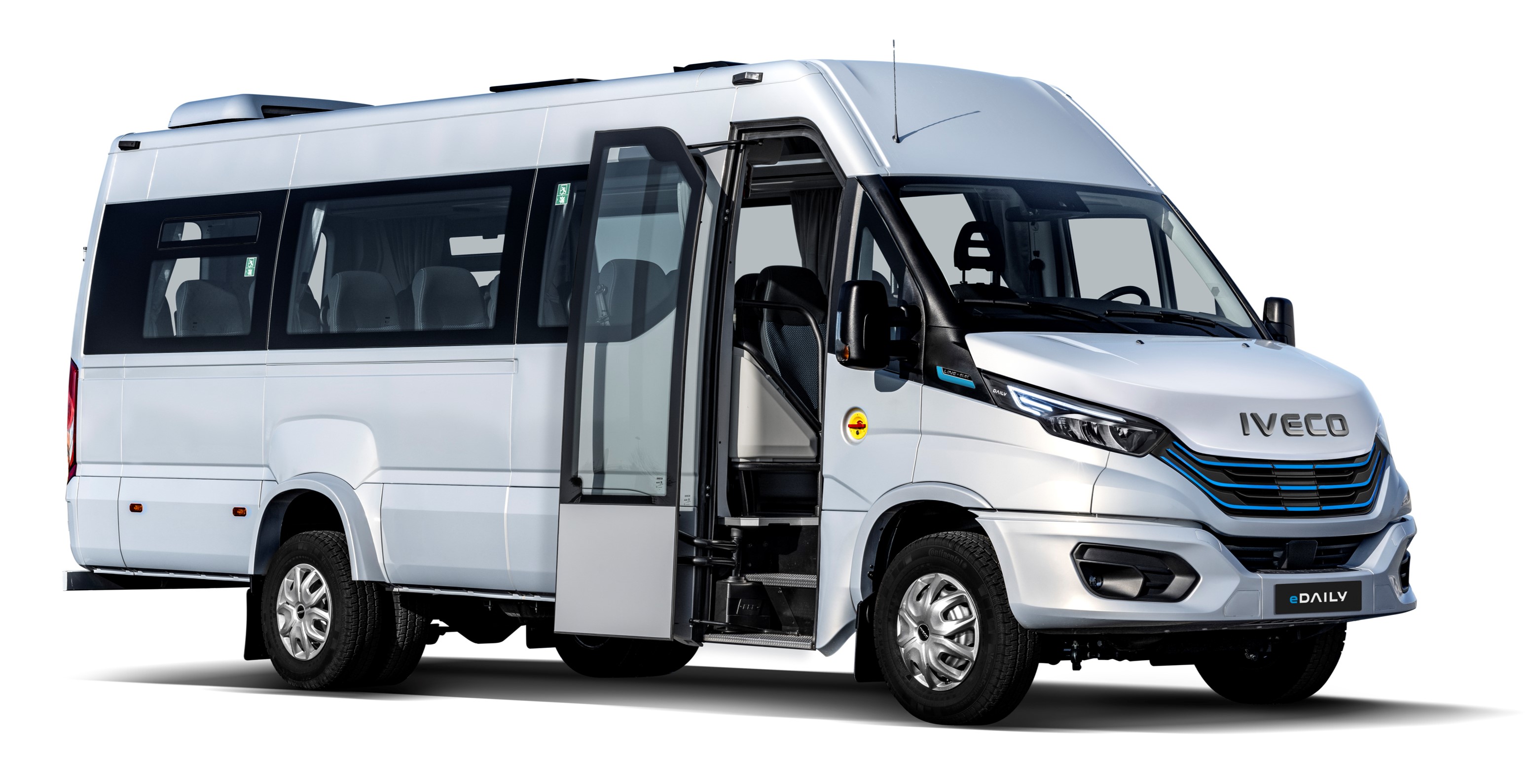Maximum range through efficient thermal management
The challenges in the field of electric mobility, particularly with regard to the range of electric vehicles, are complex. In addition to battery capacity and the efficiency of the drivetrain, external conditions also play a decisive role. Extreme temperatures, be it heat or cold, have a significant impact on range, as air conditioning and heating consume additional energy. This aspect is not only technically relevant, but also has a direct impact on the acceptance of electric vehicles by consumers. In contrast to conventional vehicles with combustion engines, which use the waste heat from the engine, electric cars have to draw the energy for heating directly from the battery, which can lead to significant losses in range.
(c) IVECO
In this context, a high-level European consortium led by the AIT Austrian Institute of Technology initiated the MINDED research project (long title: Thermal and energy Management for INcreased Driving range of an Electric minibus including improved user-centric Design and thermal comfort) - with the aim of making a significant contribution to increasing the range of electric vehicles through innovative and efficient thermal management.
As part of the project, the consortium, which consists of a total of eleven European partners from research and industry, aims to develop an innovative battery-electric IVECO eDaily minibus. This should have a 20 percent improved range at 0°C lifting temperature. This is achieved by integrating extremely efficient infrared heating panels in the vehicle, which are controlled by an optimized thermal and energy operating strategy.
Optimized thermal management and use of AI to increase efficiency
Electric vehicles currently on the market generally use conventional PTC heaters to generate heat in the passenger compartment. These heating elements are made of ceramic material and are based on so-called "positive temperature coefficient technology" (PTC). The PTC material is characterized by the property of increasing its resistance as the temperature rises. However, this is accompanied by a significant energy requirement, which is drawn directly from the traction battery and therefore reduces the range.
To meet this challenge, MINDED relies on the use of innovative infrared heating panels. The radiant heat, which is perceived as extremely pleasant, leads to a reduction in the overall heat requirement and therefore offers considerable potential for energy savings. The smart positioning of these panels makes it possible to reduce the room temperature by up to 5°C - without compromising comfort. A particular focus is also on the development of a new type of air conditioning system with heat pump mode (based on an oil-free compressor), which aims to realize an increase in efficiency at any time of year.
The project is also researching new methods for predicting driver decisions with the help of artificial intelligence in order to further optimize energy management. In this context, an innovative human-machine interface (HMI) is being developed to guarantee excellent usability and user-friendliness. The optimal insulation of the vehicle interior is also an important focus of the project.
Validation on the test bench and using Digital Twin
To validate the results, the IVECO eDaily minibus is measured on an air-conditioned roller test bench to demonstrate the performance of the heating panels at 0°C. The simulation of the entire vehicle digital twin model takes into account the powertrain, heating and air conditioning systems as well as AI-based predictions of driving behavior. This enables a comprehensive evaluation of the thermal and energy-related operating strategy.
AIT is taking on the following tasks as part of the project:
- Overall project management: 11 partners, total funding amount approx. 5 million euros
- Digital Twin models: A comprehensive simulation system is being developed in collaboration with partners to enable simulative design and development of the operating strategy.
- Implementation of a new thermal management system: An efficient heating system will be implemented by integrating infrared heating panels into the minibus. In addition, a user-centered human-machine interface will be developed to allow drivers and passengers to set target temperatures and receive feedback on their comfort status.
- Thermal management system: The focus is on developing an energy-efficient and comfort-optimized operating strategy for the infrared heating system.
AIT expert Thomas Bäuml, project manager of MINDED, emphasizes: "Our goal is not only to increase energy efficiency, but also to optimize comfort for drivers and passengers. By integrating infrared heating panels and developing intelligent user interfaces, we are creating an innovative solution in the field of thermal management for electric vehicles. In this way, we want to make a decisive contribution to increasing the acceptance of electrically powered vehicles and thus ultimately contribute to environmentally friendly mobility in line with the European Green Deal."
Fundig frame: Horizon Europe HORIZON-CL5-2023-D5-01-01 (User-centric design and operation of EV for optimized energy efficiency [2ZERO Partnership])
![[Translate to English:] Vehicle System Simulation Symbolfoto: Das AIT ist Österreichs größte außeruniversitäre Forschungseinrichtung](/fileadmin/_processed_/d/1/csm_Propulsion_tech_a0fd5ccaf0.jpg)




